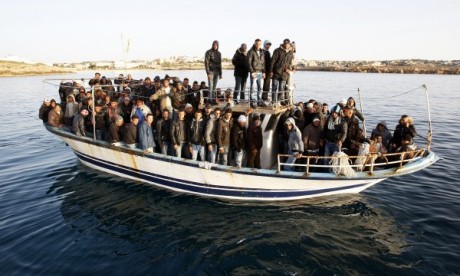The recent drowning of hundreds of illegal migrants off the coast of the Italian island of Lampedusa has caused a stir, as spectacles tend to. But, really, this is no more than a freak occurrence. Like mass shootings in America or child abductions by strangers, it is a statistically insignificant event attached to an emotive story. Freak news events don’t actually mean anything, but they look like they should. They are a poor basis for political conversation and government policy because they tend to misdirect our attention from what is really important – for example, by confusing our sense of vulnerability with objective risk.
Yet the stir around Lampedusa is itself worth looking into. The pope said such tragedies are “shameful,” but I would describe Europe’s emotional state as one of embarrassment. The embarrassment relates to our reluctance to confront the hypocrisy embedded in how we think about immigrants from the poor and broken parts of the world. On the one hand, we have high moral standards about our duty of care to refugees fleeing lives of squalor, fear and oppression, and these are embedded in various international treaties and national laws. On the other hand, if we applied those standards generally, we would have to accept that over a billion people have some legitimate claim to refugee status.
Who are those billion? Most women in the Middle East and perhaps Central America; homosexuals from most of the world; many of the world’s indigenous peoples; most inhabitants of failed states like Somalia and the Central African Republic; everyone but the elite in totalitarian dictatorships like Eritrea, North Korea and Uzbekistan; the 12 million people without citizenship of any state; religious and ethnic minorities in intolerant countries like Pakistan and Burma; all the civilians in war zones like Syria and Baghdad; India’s untouchables; China’s Tibetans; the vast number of refugees interned for decades in long-term camps in poor countries, like the Somalis living in Kenya or the ethnic Nepalis expelled by Bhutan – and so on. Continue reading
Sources
